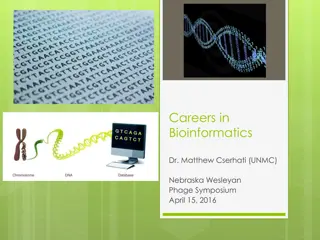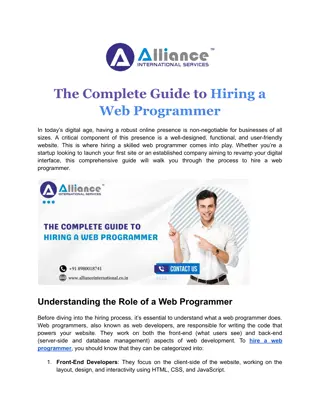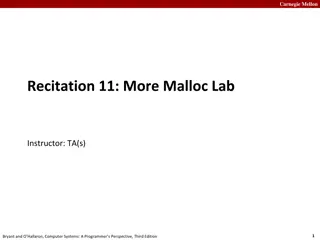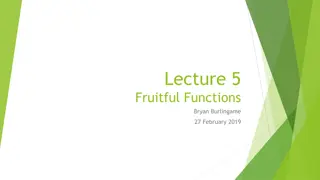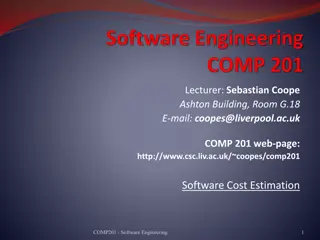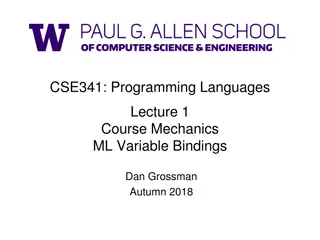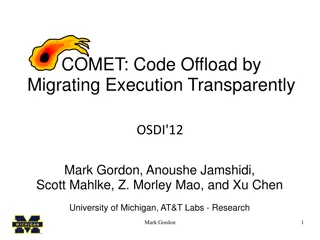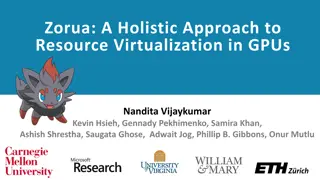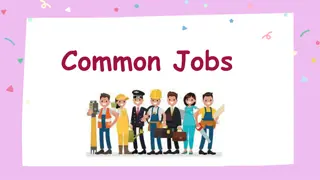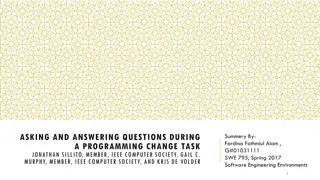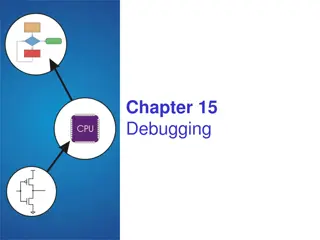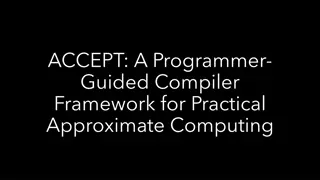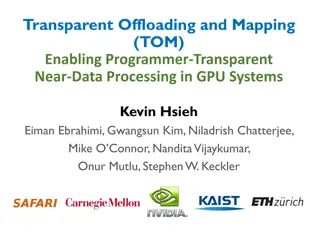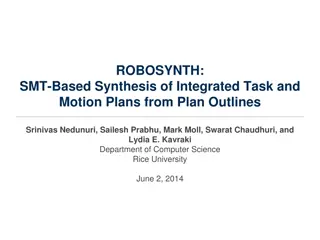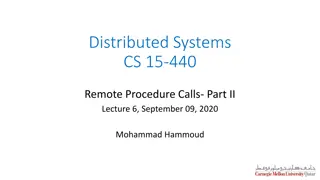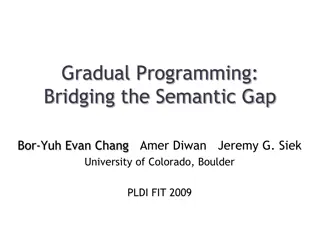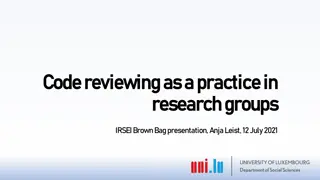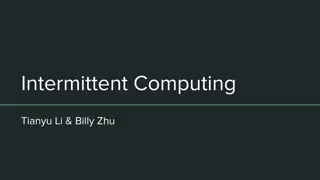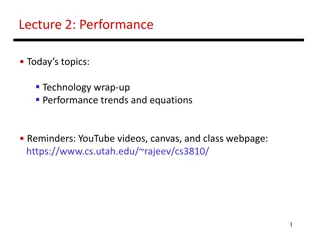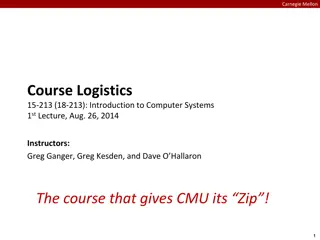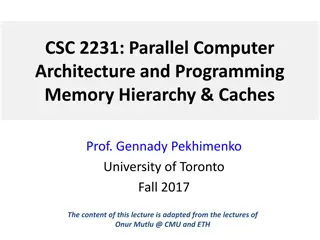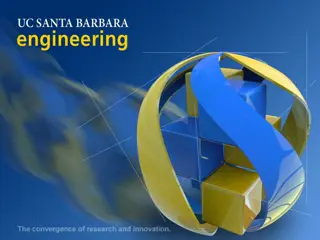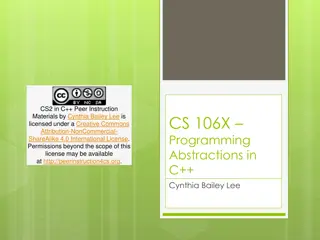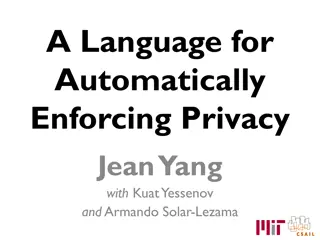Exploring Bioinformatics: Careers, Research, and Disciplines
Bioinformatics is an interdisciplinary field combining biology, computer science, mathematics, and statistics. Dr. Matthew Cserhati, a bioinformatics programmer, has a background in biology and software engineering. His research includes projects like NeuroAIDS database development and Staphylococcu
2 views • 46 slides
The Legacy of Ada Lovelace: First Programmer and Tech Visionary
Ada Lovelace, born in 1815 as the only child of Lord Byron, overcame societal norms to become the first programmer. Influenced by her mother, she delved into mathematics and logic, eventually collaborating with Charles Babbage on his Analytical Engine, laying the foundation for computer programming.
0 views • 4 slides
The Complete Guide to Hiring a Web Programmer
Discover essential tips and strategies in our complete guide to hiring a web programmer. Find the right talent to elevate your online presence!
0 views • 4 slides
Understanding Memory Management in Computer Systems
Explore Carnegie Mellon University's concepts on heap management and memory allocation strategies as detailed in "Computer Systems: A Programmer's Perspective." Dive into topics such as extending the heap, free blocks, and common problems with throughput and memory utilization.
0 views • 21 slides
Understanding Fruitful Functions in Python
Exploring the concept of fruitful functions in Python, which are functions that return a value defined by the programmer. We delve into the definition, examples, and usage of fruitful functions, along with refactoring techniques and the handling of return values in functions.
1 views • 25 slides
Software Cost Estimation in Software Engineering
Software cost estimation in software engineering involves predicting the resources required for a software development process. It includes fundamental estimation questions, software cost components, costing and pricing considerations, software pricing factors, and programmer productivity assessment
0 views • 30 slides
Autumn 2018 CSE341 Programming Languages Course Overview
Welcome to the Autumn 2018 CSE341 course on Programming Languages! Join us for a comprehensive 10-week journey to grasp the core concepts that underlie all programming languages. Dive into ML, Racket, and Ruby while honing your programming skills through homework assignments. Engage with the course
1 views • 32 slides
COMET: Code Offload by Migrating Execution - OSDI'12 Summary
The research paper discusses COMET, a system for transparently offloading computation from mobile devices to network resources to improve performance. It outlines the goals of COMET, its design, and evaluation, focusing on distributed shared memory and bridging computation disparity through offloadi
0 views • 31 slides
Zorua: A Holistic Resource Virtualization in GPUs Approach
This paper presents Zorua, a holistic resource virtualization framework for GPUs that aims to reduce the dependence on programmer-specific resource usage, enhance resource efficiency in optimized code, and improve programming ease and performance portability. It addresses key issues such as static a
0 views • 43 slides
The Magic of Recursion in Programming
Discover the power of recursion in programming through insightful insights and examples. Explore recursive algorithms, methods, and the significance of believing in yourself as a programmer. Understand the crucial roles of arguments and parameters in methods, and delve into the intricacies of how me
0 views • 77 slides
Explore Common Jobs and Career Aspirations with Images
Discover various common professions such as teacher, doctor, nurse, dentist, vet, chef, baker, policeman, firefighter, pilot, businessman, accountant, lawyer, scientist, programmer, and mechanic through images and aspirations of individuals wanting to pursue these careers.
0 views • 21 slides
Understanding Programmer Questions and Tool Support During Code Evolution Tasks
This study investigates the types of questions programmers ask and how well existing tools support them during software evolution tasks. It introduces a catalog of 44 question types and discusses behaviors observed while answering these questions. The study highlights the gaps in tool support for pr
0 views • 11 slides
Understanding Debugging in High-Level Languages
Debugging in high-level languages involves examining and setting values in memory, executing portions of the program, and stopping execution as needed. Different types of errors – syntactic, semantic, and algorithmic – require specific debugging approaches. Syntactic errors are related to code l
0 views • 9 slides
ACCEPT: A Programmer-Guided Compiler Framework for Practical Approximate Computing
ACCEPT is an Approximate C Compiler framework that allows programmers to designate which parts of the code can be approximated for energy and performance trade-offs. It automatically determines the best approximation parameters, identifies safe approximation areas, and can utilize FPGA for hardware
0 views • 15 slides
TOM: Enabling Programmer-Transparent Near-Data Processing in GPU Systems
This paper discusses Transparent Offloading and Mapping (TOM) for enabling programmer-transparent near-data processing in GPU systems. It addresses the opportunity of processing data directly in 3D-stacked memories, the challenges involved, and introduces a new mechanism for identifying and deciding
0 views • 12 slides
ROBOSYNTH: SMT-Based Synthesis of Integrated Task and Motion Plans
The ROBOSYNTH system aims to facilitate the creation of task plans that are feasible at the motion level by integrating task and motion planning. It provides a structured approach to generating plans, considering constraints on robot paths. The system employs a C program with defined actions and con
1 views • 25 slides
Understanding Remote Procedure Calls in Distributed Systems
Explore the concept of Remote Procedure Calls (RPC) in distributed systems, including the basic RPC approach, middleware layers, transport primitives, failure types, and more. Learn how RPC enables communication between sender and receiver seamlessly, without direct message passing visible to the pr
0 views • 19 slides
Bridging the Semantic Gap in Gradual Programming
Observing a disconnect between programmer intent and program meaning, Gradual Programming by Bor-Yuh Evan Chang, Amer Diwan, and Jeremy G. Siek explores tools' lack of knowledge in understanding programmers' priorities, hindering productivity and reliability. Through examples like iteration orders a
0 views • 8 slides
Importance of Code Reviewing in Research Groups and Real-World Consequences
In research groups, conducting code reviews is vital for ensuring data accuracy and code quality. By examining data cleaning, analysis methods, and running explicit tests by a programmer not involved in the initial coding, potential errors and biases can be identified and corrected. Examples like th
0 views • 15 slides
Intermittent Computing: A Look into Energy-Harvesting Devices and Key Challenges
Intermittent computing, exemplified by energy-harvesting devices like the WISP RF-powered platform, poses challenges such as unreliable power leading to computation stoppages. Common techniques like checkpointing and task-based computation are employed to ensure progress and correctness in this cont
0 views • 42 slides
Performance Trends and Challenges in Modern Computing
Three key roadblocks hindering performance improvements in modern computing include power constraints, stagnant technology scaling, and limited innovation in complex ideas. The historical contributions to performance show that better processes, circuits, and organization have driven advancements, bu
0 views • 17 slides
Carnegie Mellon Course Logistics: Introduction to Computer Systems
Carnegie Mellon University offers the course 15-213: Introduction to Computer Systems, taught by instructors Greg Ganger, Greg Kesden, and Dave O. Hallaron. The course covers essential topics in computer systems and programming, emphasizing practical skills through lectures, labs, and exams. Recomme
0 views • 23 slides
Understanding Memory Hierarchy in Parallel Computer Architecture
This content delves into the intricacies of memory hierarchy, caches, and the management of virtual versus physical memory in parallel computer architecture. It discusses topics such as cache compression, the programmer's view of memory, virtual versus physical memory, and the ideal pipeline for ins
1 views • 86 slides
UC Santa Barbara engineering
Explore the need for specification languages in quantum algorithms, correctness verification methods, programmer assertions, success probabilities, scalable compilation techniques, and language design ideas. Emphasizing the importance of tracking precision, error bounds, and optimizing quantum opera
0 views • 8 slides
C++ Programming Abstractions: Peer Instruction for Java Programmers
Explore C++ concepts from a Java programmer's perspective, emphasizing good design principles like decomposition and readability. Delve into coding examples, such as clearing a chess board for a Queen safety program, discussing off-by-one errors, pass by reference feature, and decision making betwee
0 views • 15 slides
Automated Privacy Enforcement System Presentation
Explore a comprehensive overview of a language designed to automatically enforce privacy policies, presented by Jean Yang. The system aims to simplify the process of preserving user data confidentiality, addressing concerns such as displaying user locations, fine-grained policies, and programmer bur
0 views • 31 slides
